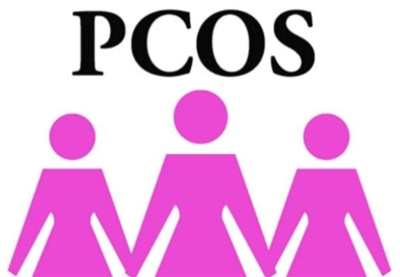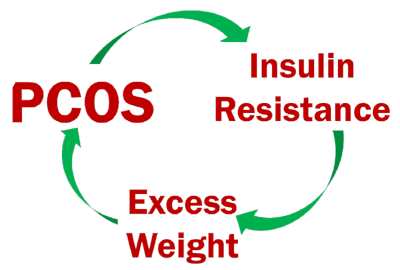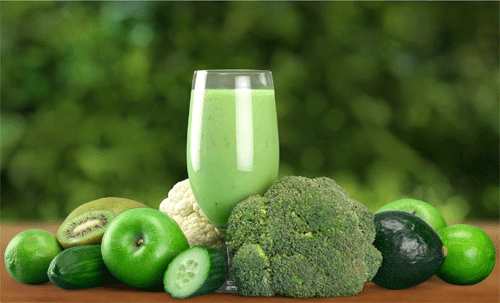PCOS is an abbreviated form of Polycystic Ovary Syndrome, which affects 1 in every 10 women these days.
It is a bit difficult to diagnose PCOS with simple tests, since the symptoms vary from one women to another. (Go straight to the PCOS diet plan)
So, it is highly advised to consult a Gynecologist for an early diagnosis as it is linked with the risk of getting several health issues such as Insulin resistance, Hypertension, Type 2 diabetes, Infertility (pregnancy issues), higher cholesterol levels and may even lead to heart disease.
If you don’t have PCOD or PCOS but still have problem with Insulin control, then you can follow the low glycemic diet for weight loss. If you just wanted to lose weight and don’t have any medical condition, then you can straightaway follow the 7 days General Motors diet.
Difference between PCOS and PCOD
Most people often get confused with the terms PCOS (Polycystic ovarian syndrome) and PCOD (Polycystic ovarian disease).

Both these health issues are associated with the ovaries.
While PCOS is an endocrine system disorder, the PCOD is a condition caused due to imbalance in the hormones. Although, there is no exact cause identified for both the diseases, hormonal imbalance and genetics are said to have an important role.
In simple english, the ovaries of PCOS affected girls produce higher levels of Androgen, which interferes with egg development and release. Some of these eggs form cysts and may cause infertility problems.
And, in girls with PCOD, the imbalance in the hormones lead to formation of mature eggs in the ovaries, which later become cysts like in the case of PCOS.
So, in both the cases, women are subjected to infertility problems and several other health issues such as those mentioned above.
Besides taking medical assistance, it is highly advised to have a healthy PCOS/PCOD diet along with regular exercise to lower your blood glucose levels and regulate your menstrual cycle.
PCOS/PCOD Indian Diet Plan for Weight Loss

After Waking Up: Choose any 1 you like..
- Warm water or any herbal tea of your choice without sugar & 10 soaked almonds
- 1 Glass Green juice (bottle gourd, mint, cucumber, ginger, lemon) + 10 soaked almonds
Breakfast: Choose any one of the below options
- 1 Cup of Oats with Skimmed Milk and Your Favorite Fruits as toppings
- 1 Wheat Bread Toast with Apples or Banana slices
- 1 Cup of Millet Porridge
- Apple & Banana Smoothie with Chia or Flax Seeds
- 2 Idlis with Sambar
- 1 cup Broken wheat upma or Vegetable oats upma
Mid Morning Snack:
- 1 Cup Green Tea + Guava or Gooseberries
Lunch: Any 1 of the following options. Avoid White rice completely.
- 2 Whole Wheat Rotis (Pulkas) with Dal and Vegetable Salad + 1 bowl curd/yogurt
- ½ Cup Brown Rice with Vegetables of your choice (exclude Potatoes) + 1 bowl curd/yogurt
- Chicken Soup + Vegetable Salad
- ½ cup brown rice with Chicken breast + Veg Salad + Curd
- 2 Chapatis with Chicken/Paneer/Egg curry + Veg Salad + Curd
Evening Snack:
- Coffee or Tea without Sugar and 2 fiber biscuits
- Fruit salad (exclude banana, if you had it in the morning smoothie) + handful of walnuts or any other nuts
- 2 Eggs
- 1 small bowl of sprouts + a glass of buttermilk
Dinner: Pick 1 from the below options.
- Grilled Chicken/Fish with sauteed veggies (no potato)
- 1 Chapati with Raita
- Fruits of your choice
- Vegetable soup
This is just a sample PCOS Indian diet plan for Vegetarians and Non-Vegetarians. You can mix and match the menu with the foods of your choice (please see the allowed foods list below).
Foods to Include in a PCOS Diet Menu
To manage PCOS o PCOD in a more effective manner, include the following food groups in your regular diet. It will not only control insulin levels, but also help you lose weight naturally.

1.Green Leafy Vegetables
All green leafy veggies are low in calories and high in nutrients such as Calcium, Iron, Potassium, Magnesium and several vitamins like K, C, B group and E.
Most importantly, they contain B vitamins such as B2, B3, B5 and B6, which help with sugar and fat metabolism, thus improving the hormonal balance and also can help with infertility caused due to PCOS.
2.Bright Colored Vegetables
These are loaded with powerful antioxidants that help in normalizing the oxidative stress in women with PCOS.
The best veggies you can include in your everyday diet are Sweet potatoes, Red and yellow bell peppers, tomatoes, carrots, eggplant, bitter gourd etc…
3.Fruits
Fruit are good, especially if you’ve a sweet tooth. But, make sure to include those fruits with low Glycemic Index such as Limes, apricot, grapefruit, strawberries, cantaloupe, guava, pear, watermelon, lemon, blueberries, apples, nectarines, kiwi fruit etc…
Also, include handful of nuts and seeds along with fruits to get the protein boost, which also helps in controlling the sudden spike in your sugar levels.
4.Healthy Fats
It is myth that fats are unhealthy and not good for weight loss. In fact, there are good fats and bad fats.
Including the good fats promote hormonal balance and help with weight management.
You can include all kinds of seeds, nuts, avocado, olive oil, tuna and salmon.
They not only contain healthy fats, but also B vitamins and Vitamin D, both are recommended for treating PCOS.
5.Organic Meat
Protein helps with weight management as it creates satiety and you’ll feel fuller for longer periods.
And, what more good than meat, to get the right amounts of protein without increasing the calories?
Yes, you can opt for lean cut organic meat in your PCOS diet to lose weight naturally.
6.Carbs with Low Glycemic Index
Not all carbs are bad for weight loss. You should choose the complex carbs over simple carbs for weight loss.
Foods with low glycemic index such as legumes, beans, lentils and non-starchy vegetables need longer periods to get digested and thus do not cause sudden spike in the blood glucose levels.
These foods also keep you stomach full for more hours.
Foods to Avoid If you’ve PCOS/PCOD
If you’ve PCOS or PCOD, you should definitely avoid these food groups as they increase the insulin resistance and makes your PCOS/PCOD symptoms worse.
1.High Glycemic Foods:
Avoid biscuits, while bread, white rice, white pasta, cakes, cereals, dried fruits, candy, pies, sodas, ice creams, fruit juices and packaged foods.
2.Dairy Products:
Regular consumption of milk increase the male hormone levels (testosterone), which makes the PCOS symptoms worse. So, try to stay away from the dairy products such as milk, yogurt, cheese, butter and all other products that are made using milk as a by-product.
3.Soy Products:
Researchers found that Soy is linked to delayed ovulation in some women and hence it is advised not to consume soy based products if you’ve PCOS, especially if you’ve trying to conceive.
4.Bad Fats:
As we mentioned earlier, it is highly suggested to consume good fats and avoid bad fats at all costs as they’d dampen your PCOS weight loss diet.
Try to stay away from foods that contain saturated fats, trans fats and hydrogenated fats.
5.Caffeine:
If consumed in limits (once or twice per day) without sugar or milk, then Coffee is extremely good for weight loss. But, overconsumption (3 or more cups a day) might interfere with fertility in women.
It increases estradiol, a hormone that affects ovulation and menstrual cycle of a women.
6.Alcohol
It is a no-brainer. Avoid alcohol. That’s it.
7.Processed or Packaged Foods
Finally, avoid foods that are packed or processed as they contain lots of chemicals, flavors, additives and preservatives, which cause hormonal imbalance and also increase insulin resistance in the body.
Other Useful Tips to Control PCOS Naturally
As of now, there is permanent or particular cure for PCOS/PCOD. However, you can follow a healthy lifestyle and good eating habits to minimize the PCOS symptoms naturally. The only thing you should do is to improve your insulin sensitivity by making the lifestyle changes to suit the problem.
Here are some helpful health tips that improve insulin sensitivity and to manage PCOS/PCOD.
- Avoid refined foods and replace them with whole grains.
- Avoid fruit juices and replace them with whole fruits.
- Avoid sugar completely and replace it with Stevia or natural honey.
- Eat foods with good carbs that are low in glycemic value, as they will not suddenly raise the blood sugar levels.
- Eat fiber rich foods like legumes and vegetables
- Get your protein right by including Lentils, Meat, Eggs etc…
- Eat just 2 to 3 times per day. Don’t eat too frequently. It gives your body enough time to digest the meal that you’ve already eaten.
- Limit salt intake and instead make use of lemon juice, vinegar, spices etc…
- Say no to processed and packaged foods
- Munch on healthy snacks like nuts and seeds
- Include healthy fats like Tuna, Salmon, Avocado in your diet
- Get enough sleep for at least 6 to 8 hours
- Exercise daily for at least 30 minutes
- Track your menstrual cycle regularly using a mobile app and consult the doctor in case if the gap is more than 40 days.
That’s all friends! Follow this healthy PCOS Indian diet plan to lose weight naturally and also to manage your PCOS/PCOD symptoms naturally.
